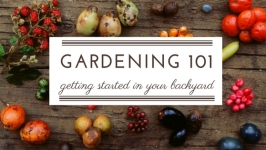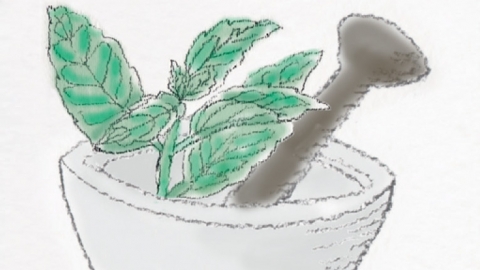Underground Secrets to Find Happiness in the Garden
The Scoop on Soil and Your Happiness – Making the case for digging in the dirt—it’s good for you, your happiness and your garden!
We’ve all heard about how foods can heal or prevent illnesses—from turmeric for inflammation and ginger for nausea, to honey for sore throats and fennel for digestion. And we all know just by personal experience how eating good foods can make us feel.
But what about the dirt those foods grow in?
Well, as it happens, there’s a humble soil microbe called Mycobacterium vaccae that might just be able to help fight depression. According to some studies, this microscopic soil dweller has the ability to mimic the effects of drugs like Prozac on neurons in the brain (but without the side effects) by stimulating production of serotonin, one of the feel-good chemicals in the brain whose absence has been linked to depression, anxiety and other mental health challenges.
How does it work? Just like human bodies have their own microbiome—the collection of microorganisms that live in a particular environment, like in your gut, for example—so does soil. When you take a walk in the woods or play in the dirt in the garden (or even eat garden-fresh veggies), you can come into contact with the bacteria that live in this microbiome by inhaling, ingesting or having topical contact with them. This gets Mycobacterium vaccae into the bloodstream. Once in the body, it prompts the production of proteins called cytokines, which simply put, activate the immune system.
As it happens, there’s a humble soil microbe called Mycobacterium vaccae that might just be able to help fight depression.
M. vaccae also gets serotonin production going in those areas of the brain that, according to some schools of thought on mental health, need to be bathed in the neurotransmitter to keep your mood up. Studies have been conducted on mice and on humans undergoing cancer treatment, and results have been promising in terms of discovering a correlation between M. vaccae exposure and improved mood.
This makes a strong case for digging in the dirt—no matter how small a garden you have access to—or undertaking the Japanese practice of shinrin-yoku, or forest bathing.






